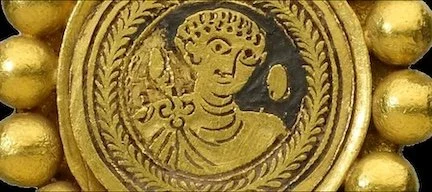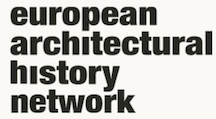Pasold research grants are awarded to fund high quality research, relating to all branches of textile history including the history of dress and fashion.
Applications are encouraged for projects where there will be a lasting outcome in the form of a publication or an exhibition or similar. This includes conservation related projects, leading to publications, but excludes the purchase or repair of objects and the purchase of hardware (eg cameras or computing equipment or computer software).
Applications will also be considered where preliminary work is needed for the preparation of a more substantial grant application to one of the major funding bodies.
Applications may be made to fund conference attendance – these applications may come from individuals or from conference organisers seeking funding for a named applicant.
However, it is important to provide an abstract of the paper and details of the nature of the conference and its significance. Where a conference organiser is seeking support for a named delegate details of the conference, a CV of the delegate and title and abstract of the paper are required.
All successful grant applicants, where appropriate, will be encouraged to consider submitting the outcome of their research to Textile History.
Publication would of course be subject to editorial refereeing and decision. Grants in aid of publicationfor a contribution towards illustrations, will be considered where a clear case is made explaining the absence of funding from other sources and the way in which the illustrative material is essential to the analysis and quality of the research output. Where funding is sought to complete or to part-finance a commissioned work and/or a work to be published under the auspices of a university, museum, gallery or similar, please specify the necessity, the case for, and the role of, the additional external funding.
PLEASE NOTE:
• The Pasold Research Fund will not fund salaries.
• Only research expenses such as travel, subsistence, photocopying, microfilming and similar are funded.
• We do not accept retrospective applications.
• All costing must be in GB£ sterling;
• Grants are awarded in GB£ sterling. A sterling cheque is sent to the grant recipient.
• Successful applicants must wait a full calendar year following the end of their grant before submitting another application for Pasold funding.
IMPORTANT:
Applications must be submitted at least 80 days before the beginning of the research project/conference attendance or other activity; or for grants schemes with named deadlines, the project should start at least 80 days after the deadline. The Pasold wishes to ensure that sufficient time is given to referees to assess applications and that applications' outcomes are notified well in advance of the starting date of the research activity.
Please also note that the Pasold Research Fund will not fund salaries, only research expenses such as travel, subsistence, photocopying, microfilming and similar. We do not accept retrospective applications. All costings must be in GB£ sterling.
APPLICATIONS
Application forms should be submitted electronically to: histart-pasold@york.ac.uk
DETAILS AND DEADLINES FOR RESEARCH GRANTS
The Pasold has recently changed its Grants structure. Please read carefully.
1. Research Activity Grants (under £750).
Applications may be made at any time.
2. Research Project Grants (between £751 and £2,500).
Two deadlines 1 March and 1 October each year.
3. PhD Grants for PhD students registered at a British institution (up to £2,500).
Single deadline: 15 June each year.
4. MA Grants for MA students registered at a British institution (up to £500).
Single deadline: 15 April each year.
5. Publication Grants (up to £1,000).
Two deadlines: 15 February and 1 September each year.
6. Raine Grants to assist individual staff working in UK museums (up to £500).
One deadline: 30 June each year.
7. Pasold Fellowships in collaboration with the Victoria and Albert Museum (up to £1,500).
The Research Fellowship schemes are suspended at present due to collections movement at both the V&A and Museum of London.
8. Neaverson Pasold Postdoctoral Fellowship (up to £20,000)
One deadline: 1 April 2025
THE CRITERIA APPLIED IN JUDGING RESEARCH GRANT APPLICATIONS
which can be in ANY area of the history of textiles including multidisciplinary approaches, are as follows:
1. Originality and rigour of the research, especially where the study of the history of textiles is being approached from a new angle, using new sources or new methodology. You must demonstrate that the history of textiles is the central area of concern and study.
2. The care given to laying out of objectives and design of the research.
3. The viability of the research within the timescale laid out and in view of the research training or experience of the applicant.
4. The contribution of the research in terms of publications, the development of web based materials, exhibitions or similar.
5. Referees’ reports (at least one nominated referee should be from outside the applicant's own institution).
SOME REASONS WHY APPLICATIONS ARE TURNED DOWN
Competition for our grants has grown significantly in the last few years. We are sometimes surprised by the poor presentation of applications. We thought it would help applicants to know the most common reasons for applications being turned down:
1. Applications in which the history of textiles is peripheral and not central to research (if in doubt please make preliminary enquiries to the Director).
2. Applications which fail to convey the scope and significance of the research and its wider contribution. If it is necessary for applicants to write at length they should not confine themselves to the short space on the form. You are invited to use a continuation sheet. Many applicants ignore this.
3. Applications where the costings are incomplete, inaccurate, do not give totals and sub-totals, are not in £ sterling or where the cheapest method of transport has not been investigated.
4. Applications for travel to conferences which do not provide an abstract of the paper or the significance of the conference – a title is not enough.
5. Carelessly prepared applications.
If you have further queries as to whether you are eligible or about the type of support do please contact the Pasold Research Fund's Director, Dr Bethan Bide at
histart-pasold@york.ac.uk or bethan.bide@york.ac.uk.
For more information, visit https://www.pasold.co.uk/important-information






















